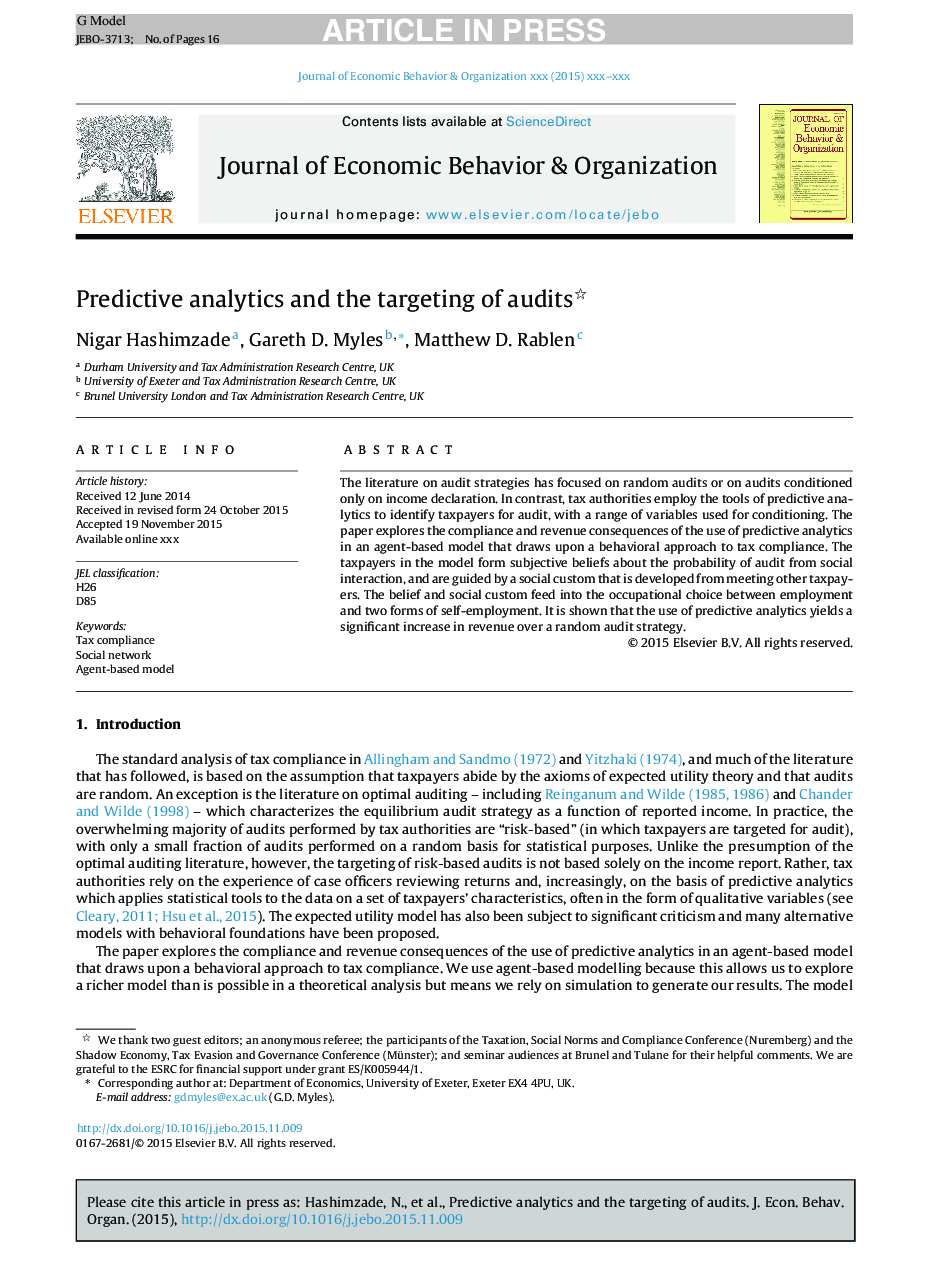| Article ID | Journal | Published Year | Pages | File Type |
|---|---|---|---|---|
| 7242856 | Journal of Economic Behavior & Organization | 2016 | 16 Pages |
Abstract
The literature on audit strategies has focused on random audits or on audits conditioned only on income declaration. In contrast, tax authorities employ the tools of predictive analytics to identify taxpayers for audit, with a range of variables used for conditioning. The paper explores the compliance and revenue consequences of the use of predictive analytics in an agent-based model that draws upon a behavioral approach to tax compliance. The taxpayers in the model form subjective beliefs about the probability of audit from social interaction, and are guided by a social custom that is developed from meeting other taxpayers. The belief and social custom feed into the occupational choice between employment and two forms of self-employment. It is shown that the use of predictive analytics yields a significant increase in revenue over a random audit strategy.
Related Topics
Social Sciences and Humanities
Economics, Econometrics and Finance
Economics and Econometrics
Authors
Nigar Hashimzade, Gareth D. Myles, Matthew D. Rablen,
